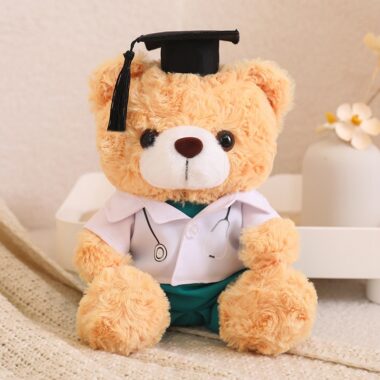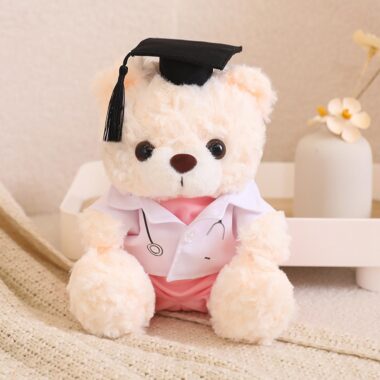Introduction
The global plush toy market continues to grow, and teddy bears remain at the heart of demand. For importers, sourcing wholesale teddy bears is both an opportunity and a challenge. Buyers must consider quality standards, supplier credibility, shipping terms, and customization options. Unlike retail buyers, global importers handle larger volumes, longer lead times, and stricter compliance checks. This guide provides an in-depth look at how to choose and work with teddy bear suppliers, ensuring smooth sourcing and reliable partnerships.
🏭 Understanding Wholesale Teddy Bear Suppliers
A teddy bear supplier offers bulk purchasing options for retailers, distributors, and promotional companies. Wholesale suppliers usually work closely with a teddy bear manufacturer or factory, allowing them to provide consistent product quality and flexible pricing. For global importers, finding the right partner means balancing cost efficiency with product reliability. It is important to verify whether the supplier operates its own factory or collaborates with multiple production partners. This distinction impacts quality control, customization capabilities, and order flexibility.
📦 Minimum Order Quantity (MOQ) and Pricing
MOQ is one of the most critical factors in wholesale sourcing. Some teddy bear factories set minimums as low as 200 pieces per style, while others require 1,000 units or more. Importers should request detailed price breakdowns for different volumes. Generally, higher order quantities bring lower unit costs. However, price is not the only metric — factors like fabric type, embroidery, and packaging also influence total cost. A professional teddy bear supplier can provide tiered pricing to help importers plan orders efficiently.
✅ Certifications and Compliance Standards
Global buyers must ensure teddy bears comply with international safety regulations. EN71 (Europe), ASTM (United States), and CE certifications are common benchmarks. Factories may also provide ISO9001 or BSCI certifications to demonstrate quality management and ethical practices. Non-compliance can lead to customs delays or rejected shipments. Therefore, choosing a teddy bear manufacturer with documented compliance is essential for importers who want to avoid costly risks and build long-term trust with customers.
🎨 Customization Options for Importers
Many global importers seek custom teddy bears that reflect their branding. This may include Pantone-matched fabrics, embroidered logos, clothing accessories, or packaging. Wholesale teddy bear suppliers often provide OEM (Original Equipment Manufacturing) and ODM (Original Design Manufacturing) services. OEM allows importers to place their logo on existing designs, while ODM involves creating new product concepts from scratch. A teddy bear factory with design and sampling capabilities adds value by helping importers stand out in competitive markets.
🚢 Shipping and Logistics Considerations
Importing teddy bears requires careful planning for international logistics. Suppliers typically offer FOB (Free on Board), CIF (Cost, Insurance, Freight), or DDP (Delivered Duty Paid) terms. Importers should evaluate lead times, which usually include 7–10 days for sampling and 25–35 days for mass production. Sea freight is cost-effective for bulk orders but requires longer transit times, while air freight supports urgent deliveries at a higher cost. A reliable teddy bear supplier helps coordinate logistics and ensures goods are packaged securely for safe arrival.
🌍 Building Long-Term Supplier Relationships
Successful importers treat wholesale teddy bear suppliers as long-term partners, not just vendors. Transparent communication about expectations, product standards, and timelines reduces misunderstandings. Regular factory visits or video audits can strengthen trust. Many teddy bear manufacturers offer dedicated account managers to support global importers with new product launches, marketing samples, and after-sales services. Strong partnerships often lead to priority production slots, better pricing, and early access to new product designs.
✅ Conclusion
Working with wholesale teddy bear suppliers requires balancing quality, price, compliance, customization, and logistics. Global importers who invest in building strong factory partnerships benefit from reliable production, smoother deliveries, and consistent customer satisfaction. Teddy bears remain a timeless product category, and with the right supplier, they can serve as both profitable merchandise and powerful branding tools.
❓ FAQs
Q1: What is the typical MOQ for wholesale teddy bears?
MOQ varies by supplier, ranging from 200 to 1,000 units per style. Larger quantities reduce unit cost and improve overall pricing efficiency.
Q2: How can I verify if a supplier is reliable?
Check certifications, request samples, and confirm factory audits. A trusted teddy bear manufacturer will provide compliance documents and references.
Q3: Do suppliers handle international shipping?
Yes, most teddy bear suppliers offer FOB, CIF, or DDP terms. Importers can choose the most cost-effective and timely shipping method for their markets.







